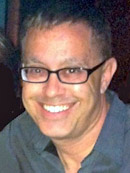
THE BRIDGE TO COLLEGE
The Evolving Role of Parenting – Part One
By Robert A.G. LeVine

Whenever a student achieves great success in admissions, we like to give credit to their parents for their guidance and support over the years. Invariably, I use these words:
“Congratulations! You got them here!”
Their usual response may surprise you: “But I didn’t do much….”
“Exactly!”
Because nobody seems to think I am being genuine when I applaud a “less-is-more” parenting effort, allow me to explain.
First, please understand that I am applauding the final part of their parenting, not their earlier efforts. Second, please accept that just like plants, students need room to grow.
Part I of this article addresses early childhood guidance. Part II will address parenting during the teenage years.
In the first few years of child rearing, parents are incredibly attentive to their children. Remember how important it seemed that we purchase the best of everything, including diapers? Remember how many photographs we took of that most-beautiful-in-the-world infant? Remember that attempt to balance the best possible diet with “what on earth can I get them to eat?”
I’m not too concerned with infancy. Basically, for your child’s first three years of life, just do your best while remembering to take care of yourself, too. If I have one suggestion, try not to give your child any options nor ask them questions (do not end your statements with “OK?”). Their minds are not yet developed enough to juggle the choices you give them. Because they do better when you dictate, don’t overload.
Once your child starts to become reasonably conscious of life at home (and also at daycare), your decisions about their activities really matter. In fact, most everything your young child does will form, develop and mold their brains … for life. But since you direct everything that happens at home, you are the one training them, consciously or unconsciously.
There are two aspects to nurturing: what they do, and what you do.
From my own experience, what a child does – and does not do – makes a difference. I didn’t start to learn a foreign language until seventh grade. Today, I am fluent in two languages: English, and Dog. I can speak to a dog in any country, but I struggle with “hello” and “thank you” everywhere I go. The struggle is real, the result of something called “neural plasticity” (or lack of it) at age 12-13. Apparently, because I didn’t learn languages when I was very young, my brain is not structured to learn languages.
On the other hand, I have been blessed with a really competitive brain, the result of being a competitive swimmer. To win a race requires a combination of maximum effort and best technique, and that lesson learned applies everywhere, especially at work. But because being on a swim team doesn’t make swimming a true team sport, I am better trying to succeed on my own than being a teammate in the best sense. If only I had played basketball….
Me? I am more of a natural-born leader. Actually, I’m a trained leader.
Over ten years ago, I founded an education consultancy that now serves students all over the world, on every continent except Antartica. Before this, while practicing law, I served as our firm’s managing partner. In law school, I was the Executive Editor of the law review. In college, I was the Station Manager at WHRB radio. In high school, I was both the Vice President and the Editor-in-Chief of our yearbook (plus swim team captain, newspaper columnist, etc. etc. etc.). And in second grade, I was our very first Class President.
When Miss Nelson announced that “We’re going to have elections for Class President,” my hand shot up in the air before anyone else’s. However, I didn’t even know what a Class President was. So, a few years ago, I sat down my parents and asked, “How did you do that?” How did they train me to do … everything?
Mom answered that question immediately. “You saw what we did. We were always busy doing things with schools, clubs and groups. If you had not raised your hand, that would have been very surprising.”
I do lots of things because all I know is to do things.
Parents, you are not just a (benevolent) dictator, nor are you just a support human. You are a role model, and what you do (and do not do) will be examples that train your child forever.
Get your child to do all manner of things that influence their brain, but also show them how to be your best possible self.Robert LeVine is the founder and CEO of University Consultants of America, an independent educational consultancy assisting students around the world with applications to colleges, universities and graduate schools. For more information, call University Consultants of America, Inc. at 1-800-465-5890 or visit www.universitycoa.com